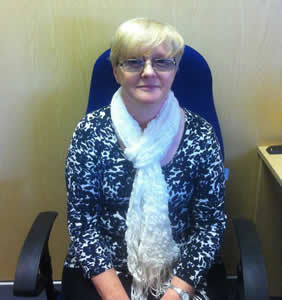What on earth is wrong with me?

I had had joint problems for many years, tendon problems and more recently, eye dryness, blurred vision, dry nose, dry ears, periods of extreme fatigue, and even more recently, very dry skin and genitals. Of course, I had been to see my GP and various specialists over time, but usually just with one or two of these symptoms. IBS and reflux were also on the agenda. The doctors were always kind, considerate and sympathetic, but I always felt like a heart-sink patient and began to become extremely anxious about seeking advice.
I had been told I was depressed, and possibly, I was – not surprising really, as I was struggling with getting through each day. And I began to feel my illness was ‘all in the mind’. I also developed some lung problems in that time – shown on a CT as bronchiectasis, and then asthma. Not surprising, I also acquired the label of ‘anxious patient’
After becoming particularly frustrated at my poor health, and as I had health insurance, I badgered my GP for a referral to a rheumatologist. This was to be my salvation.
The day of my consultation, I picked my husband up from work and we went together to the clinic. I was a nervous wreck, expecting to be told, “It’s a bit of wear and tear, get on with it.” After a thorough examination and complete medical history, he pronounced the words - ‘You have Sjogren’s Syndrome’. I could have kissed the man!
He also diagnosed two forms of osteoarthritis, and discussed various treatment options. Just as importantly, he gave me an information sheet from the Arthritis and Rheumatism Council and one from Arthritis Care (www.arthritiscare.org.uk). I walked out of that consultation a new woman!
Of course, that’s not the end of my tale. As we all know, people cope with a diagnosis in lots of ways, and go through the various stages of grief, feelings of loss, anger and eventually acceptance. Except, for a year, I really didn’t feel I was ‘accepting’. The medical information leaflets were wonderful, but I needed to speak to other people with Sjogren’s, and not as part of an expert patient group, or telephone helpline - just other people who understood the social implications of an unpredictable condition. (As my health could, and does fluctuate from one day to the next, I have had to cancel lots of social activities, losing friends in the process – who wants such an unreliable friend?).
Feeling particularly unwell and unloved one weekend, I searched the internet for ‘support for Sjogren’s’ and a wonderful site from the USA (sjogrensworld.org) was revealed to me. Cautiously, I searched the site, read some posts and thought Wow! these are people like me. It was a revelation, being able to read stories so similar to my own, but even better reading of treatments – prescribed and common-sense self help treatments, that I had never considered.
Several years on, I’m a very proud member of this group, and also of the
British Sjogren’s Syndrome Association, where I learn from others, and even offer advice to others, and I feel complete again. I know that health care systems are different in different countries, but that doesn’t mean that people’s experience of living with a chronic condition is necessarily different, so international patient forums can also be very helpful.
I think my doctor has noticed a difference in me. When I was experiencing lots of different symptoms, I began to wonder what would go wrong next. I also felt fearful about what the future would bring. Being able to speak to other people with Sjogren’s, I now know that most of my symptoms are from one syndrome, which is a big relief. Speaking with those knowledgeable people means I am also less likely to bother my lovely GP – except of course, if something new presents itself.
Why am I writing this? For many years, I felt like a freak: having had three children in three years, studied for a degree, and kept a home together, I felt like my batteries had been removed, and that I was no longer that same person. However, having a diagnosis of a particular condition, albeit one that can be difficult to diagnose, validated me, and meant that I could get the treatment I needed, without having to justify myself.
I can’t say that I have ‘found my batteries’ again, but I can say that I now know how to manage my Sjogren’s, and my life, better. Sjogren’s can cause profound fatigue, so I worked with my employer’s to reduce my working week to four days. I only ever work 2 days in a row, so I work Monday and Tuesday, have Wednesday off, and go back to work Thursday and Friday. Of course, I have had to take a pay cut, but my children are older now and not dependent on me, so that was do-able. My lovely hubby understands about my low energy levels, so we make conscious decisions about what we do, and what we don’t do, saving any available energy to spend time with our children and grandchildren.
Written by Kathy Bairstow, aged 57. Senior Adviser at Epilepsy Action. Kathy is married to David and has three sons and 6 grandchildren.
The information above may have been supplied by companies who have paid to promote here; if so the company will be listed. Your Story pages are written by individuals who have volunteered their personal stories. talkhealth does not endorse any specific products, brands or treatments and cannot vouch or verify any claims that the authors have made. talkhealth cannot provide any advice on whether a particular product or treatment is suitable. If you are in any doubt about any of the products you read about, we advise you to either contact the company concerned or seek medical advice before changing your treatment routine.
